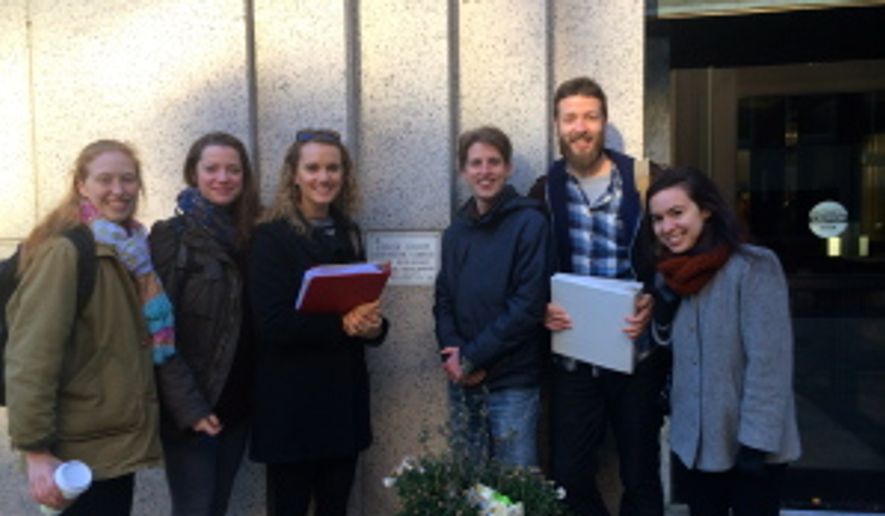Harvard University students unable to convince administrators to divest the $36.4 billion endowment from fossil fuel stocks are taking their case to court.
A group of seven law, graduate and undergraduate students sued Wednesday to compel Harvard to withdraw its investments in oil, coal and natural gas, arguing that the college has a “legal obligation — and, more importantly, a moral duty — to stop profiting from human suffering and environmental destruction.”
“Climate change has arrived, wrecking the planet and posing serious dangers to the most vulnerable among us,” said the statement by the Harvard Climate Justice Coalition. “Unless and until institutions like Harvard act to address the root causes of global warming, we will remain addicted to a system of energy production and economic injustice that guarantees catastrophe.”
The legal challenge comes as a change of strategy, with the fossil fuel divestment movement hitting a wall in academic institutions. Only 12 colleges have agreed to divest over the last several years, while at least three dozen universities have refused to do so, including Harvard, Cornell and the University of California.
The American University Board of Trustees is expected to consider whether to pull its investments from fossil fuels at its Friday meeting after a two-year divestment campaign from the campus group Fossil Free AU.
Harvard President Drew G. Faust argued in an October 2013 statement that divestment from the fossil fuel industry is not “warranted or wise.”
“The funds in the endowment have been given to us by generous benefactors over many years to advance academic aims, not to serve other purposes, however worthy,” Ms. Faust said. “As such, we maintain a strong presumption against divesting investment assets for reasons unrelated to the endowment’s financial strength and its ability to advance our academic goals.”
The lawsuit, filed in Suffolk County Superior Court of Massachusetts, accuses Harvard of “mismanagement of charitable funds” and “intentional investment in abnormally dangerous activities.” The complaint was filed on behalf of the seven students and “future generations.”
While three of the students are enrolled at Harvard Law School, they said in their statement they have not hired attorneys to handle the case.
“We’re bringing this case by ourselves, without lawyers, because we believe that we have a responsibility to confront global warming,” according to the statement on the www.divestproject.org website.
Critics of the divestment strategy contend that it jeopardizes the financial health of universities with little impact on fossil fuel companies. There’s also the argument that natural gas use should be encouraged because it results in lower carbon dioxide emissions than does burning coal.
In an op-ed Thursday in The Boston Globe, the students point out that Harvard has previously divested from Darfur, tobacco and South Africa under apartheid.
“By divesting from fossil fuels — as it already has from apartheid, Darfur and tobacco — Harvard will send a powerful moral message that will catalyze the kind of conscience-driven action needed to reverse our institutional inertia,” said the article by Alice M. Cherry, Joseph E. Hamilton and Kelsey C. Skaggs.
The lawsuit was brought against the Harvard Corporation, the Harvard Management Company and Massachusetts Attorney General Martha Coakley.
• Valerie Richardson can be reached at vrichardson@washingtontimes.com.




Please read our comment policy before commenting.